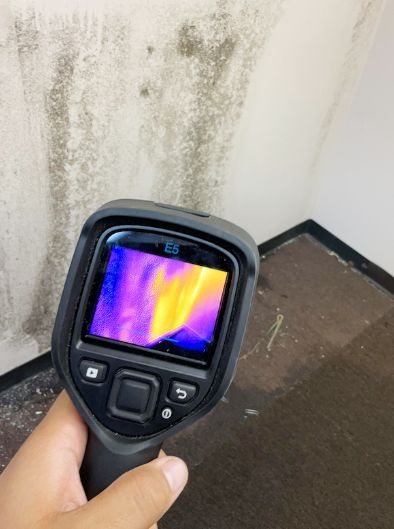Water leaks are one of the most underestimated threats to any property. They don’t always announce themselves with a dramatic burst pipe or flood—often, they creep in quietly, doing damage long before you realize something is wrong Leak detection Liverpool. Whether in a home, office, or industrial space, a hidden leak can lead to structural decay, mold growth, and expensive repairs. Stopping water leaks before disaster strikes isn’t just a matter of maintenance—it’s a matter of protection.
Why Water Leaks Are a Hidden Threat
Unlike other home hazards, water leaks rarely appear overnight. They start small: a slow drip behind a wall, a loose pipe under the sink, or a cracked seal on a window frame. Over time, those seemingly minor issues can compromise entire systems. Water seeps into foundations, warps flooring, and corrodes metal fixtures.
The real danger is that water damage compounds silently. By the time visible signs appear—such as damp spots, peeling paint, or a musty odor—the damage is often far advanced. Repairing structural or electrical components after a major leak can cost thousands, far more than preventative maintenance would have.
Common Sources of Hidden Leaks
To effectively prevent leaks, it helps to know where they most often start. Some of the top culprits include:
- Plumbing joints and pipe connections: Even a minor joint failure can cause ongoing moisture problems.
- Appliances: Dishwashers, washing machines, and refrigerators with ice makers are all frequent leak sources.
- Roofing and gutters: Blocked or damaged gutters can divert water into walls or attics.
- Windows and doors: Poor seals allow rainwater to penetrate during storms.
- Water heaters: Aging or corroded tanks can slowly leak, often unnoticed in basements or utility closets.
Regularly inspecting these areas can help catch small problems before they evolve into full-blown emergencies.
Early Warning Signs to Watch For
Even the best-maintained systems can develop leaks. Being alert to subtle changes can save time and money. Watch out for:
- Unexplained increases in your water bill.
- Damp or discolored patches on walls or ceilings.
- Low water pressure in faucets or showers.
- A faint but persistent musty smell.
- The sound of running water when all taps are off.
These signs suggest water is escaping somewhere out of sight. The sooner you investigate, the less severe the damage will be.
Preventive Measures That Make a Difference
Preventing water leaks doesn’t always require expensive technology—it’s about regular care and awareness. Here are some of the most effective prevention strategies:
- Inspect plumbing regularly: Check under sinks, around toilets, and near appliances for moisture or corrosion.
- Replace old seals and hoses: Washing machine and dishwasher hoses should be replaced every few years to prevent deterioration.
- Clean gutters and downspouts: Keep them clear to prevent overflow and roof seepage.
- Install leak detectors: Smart water sensors can alert you to leaks before they become disasters.
- Monitor your water meter: If it’s moving when no water is in use, there’s likely a leak somewhere.
- Schedule annual plumbing inspections: A professional plumber can spot problems early and make quick fixes.
Modern Technology to the Rescue
Smart home technology has transformed how we detect and respond to leaks. Devices like automatic shut-off valves and wireless moisture sensors can monitor your water system around the clock. When these systems detect abnormal water flow or humidity, they send instant alerts to your phone—and in some cases, shut off the supply to prevent flooding.
These systems are particularly useful in vacation homes or rental properties where leaks might go unnoticed for weeks. While an upfront investment, they often pay for themselves after preventing a single major water incident.
The Cost of Inaction
Ignoring small leaks is one of the most expensive mistakes homeowners can make. What starts as a minor drip can turn into structural damage, ruined flooring, or toxic mold growth. Insurance may cover some of the costs, but many policies exclude damage caused by neglect.
More importantly, leaks can affect your health. Persistent moisture promotes mold spores, which can trigger allergies, asthma, and respiratory issues. Preventing leaks isn’t just about property—it’s about safety.
Final Thoughts
Water is both a life source and a potential destroyer when left unchecked. The silent enemy of leaks can quietly erode your home’s strength and value if ignored. But with regular inspection, smart technology, and prompt maintenance, you can stay ahead of disaster.
A few preventive steps today can save you from the chaos of tomorrow. In the end, the key to protecting your home isn’t just reacting to problems—it’s anticipating them. When it comes to water leaks, prevention isn’t optional; it’s essential.



